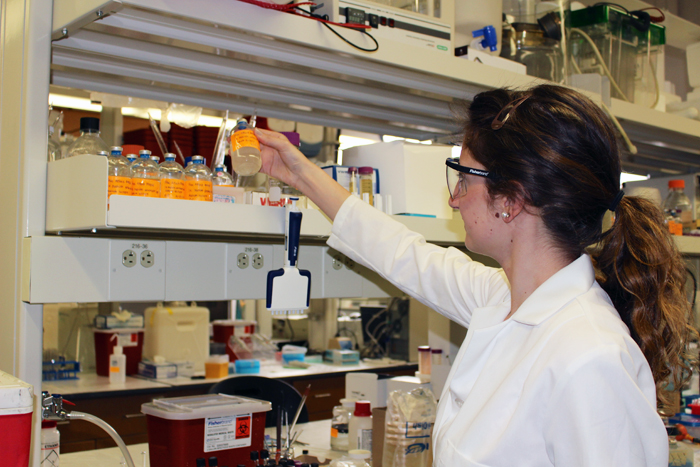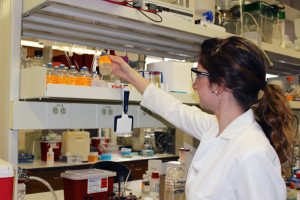

Kayla Casavant | For the Duquesne Duke
The United States Environmental Protection Agency recently awarded a Duquesne environmental science student with a $50,000 Greater Research Opportunities Undergraduate Fellowships.
The recipient, Brittney Jackson, received the fellowship for her research on fracking and water waste. The fellowship will grant Jackson funding to continue her research, as well as the opportunity to work in an EPA lab.
The fellowship’s purpose is to “bring in the next generation of students in the environmental science field,” according to Georgette Boddie, who works at the EPA’s national headquarters in Washington, D.C. and has managed the GRO Undergraduate Fellowship for 18 years.
Boddie said the fellowship’s board members review the work of undergraduates at eligible schools, and work to help them continue their research.
To apply for the fellowship, Jackson submitted a description of a project she had been working on outside of class in the Duquesne University Environmental Science lab. The project focused on water quality in unconventional shale gas extraction, according to her advisor on the project, Duquesne biology professor John Stolz.
Shale gas extraction is also called hydraulic fracturing, or simply “fracking,” according to the EPA’s website, and it is commonly used in Pennsylvania. Jackson said she hypothesized that there are toxic microbes present in fracking waste water that can use arsenic to grow anaerobically, or without oxygen.
Stolz is the director of Duquesne’s Center for Environmental Research and Education. He has studied arsenic’s interaction with fracking for several years. As a student in Stolz’s lab, Jackson approached him about a project regarding the connection between the two concepts, Stolz said.
Regarding the presence of microbes in fracking waste water, Stolz said, “No one has been looking at that.”
Stolz hopes that the fellowship will be an opportunity for Jackson to further her research.
“I honestly believe we are going to get some publications out of this, we are going to move the science forward,” said Stolz. “ This is going to be important for the industry.”
Boddie said current GRO fellows are doing “so many wonderful things.”
“Our fellows work for the EPA, they are doctors, professors, and lawyers,” Boddie said.
Jackson explained that the fellowship has already lead to opportunities for her, including an internship with the EPA in Narragansett, Rhode Island this summer.
The fellowship is very competitive, according to Boddie.Only 34 were awarded this year, she said. Applicants must submit a one page personal statement, three letters of recommendation, and a comprehensive outline of their research.The applications are then checked for completion and subjected to several rounds of peer review by several past fellows, until narrowed down to the selected recipients.
Stolz thinks Jackson’s fellowship is “just the first” of more to come.
“This puts [Duquesne’s environmental science program] on the map,” Stolz said.



